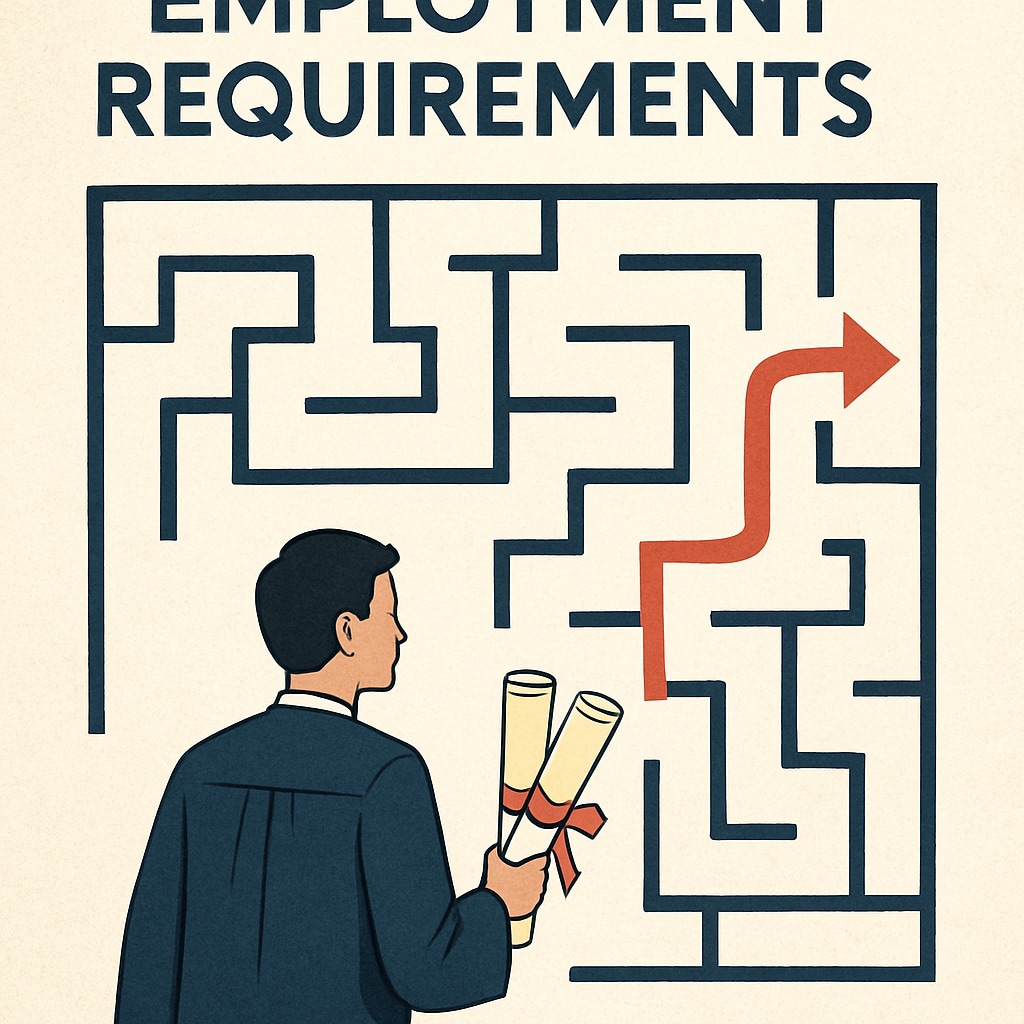In a puzzling turn of events in Arizona, a highly qualified job seeker with three college degrees was denied a government position due to the absence of a high school diploma. This case has sparked a heated debate over the fairness and logic of educational certification systems, job discrimination, and the weight given to specific qualifications. It highlights a critical flaw in employment policies that prioritize rigid, outdated requirements over actual skills and knowledge.
The Problem: Misaligned Educational Certification Standards
Arizona’s employment policy showcases a glaring disconnect between academic achievements and job requirements. The affected job seeker, despite holding multiple advanced degrees, was deemed unqualified because they lacked a formal high school diploma. This situation raises a fundamental question: why should higher education credentials not suffice in demonstrating competency?
In many government hiring systems, the presence of a high school diploma is a non-negotiable baseline requirement. However, this case illustrates how such rigid policies can inadvertently disqualify exceptionally qualified candidates. By not considering the equivalence or superiority of advanced degrees, these systems risk losing out on talented individuals.

The Educational Value Disconnect
This incident also prompts a broader discussion about the perceived value of K-12 education versus higher education. A high school diploma is often viewed as evidence of foundational skills in math, reading, and communication. However, college degrees inherently require these skills as prerequisites, along with demonstrating advanced knowledge and specialization.
The refusal to equate or prioritize higher education over high school diplomas undermines years of academic pursuit. It also sends a contradictory message about the importance of continued education. For instance, if a person has earned a bachelor’s, master’s, or even a doctorate, how can their foundational education still be questioned?
Implications for Employment Fairness and Job Discrimination
The case in Arizona underscores a form of structural job discrimination embedded within employment policies. While the intention may be to standardize evaluations, the rigid adherence to specific certifications excludes capable individuals. This can disproportionately impact those who may have pursued alternative educational paths, such as GEDs (General Educational Development tests) or international schooling systems.
Furthermore, it raises ethical concerns about fairness in hiring. Employers must reflect on whether their certification requirements genuinely serve the job’s needs or simply perpetuate bureaucratic hurdles. As a result, organizations may lose out on top-tier candidates who are technically overqualified but fail to meet outdated criteria.

Reimagining Educational Certification in Hiring Policies
To address these issues, policymakers and employers must reconsider the rigid structures governing job applications. Here are some potential solutions:
- Recognize Equivalency: Treat advanced degrees as fulfilling or surpassing the requirements of a high school diploma.
- Adopt Skills-Based Hiring: Focus on assessing candidates’ skills and experiences rather than relying solely on formal certifications.
- Provide Flexibility: Allow applicants to demonstrate qualifications through alternative means, such as standardized tests or work experience.
- Revise Legacy Policies: Update employment guidelines to reflect the modern education landscape and diverse learning pathways.
By implementing these changes, employers can foster inclusivity, attract a wider talent pool, and ensure that hiring decisions are based on merit and suitability instead of outdated bureaucratic rules.
Conclusion: A Call for Reform
The Arizona case is a startling reminder of the inconsistencies in how educational certification is valued in employment. It highlights the need for a paradigm shift in hiring policies to ensure fairness, inclusivity, and practicality. Employers must recognize that education is not a one-size-fits-all journey. By prioritizing skills and competencies over rigid qualifications, organizations can create a more equitable and effective hiring process.
As the global workforce evolves, it is critical to ensure that policies adapt alongside it. Only then can we truly value education for what it represents – the ability to learn, grow, and contribute meaningfully to society.
Readability guidance: This article uses concise paragraphs, moderate use of lists, and transition words to maintain clarity. Passive voice is minimized, and long sentences are limited to ensure accessibility for a broad audience.


